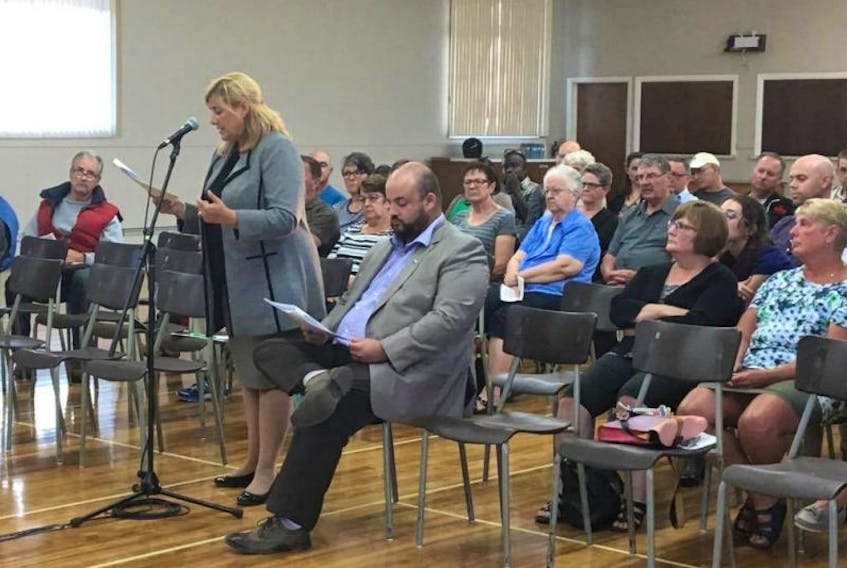That’s what Marie-Claude Rioux, executive director of la Fédération acadienne de la Nouvelle-Écosse, said at a September 12 public meeting on effective electoral representation held in Saulnierville, put on by the Commission on Effective Electoral Representation of Acadian and African Nova Scotians.
This is not the first such meeting Rioux has attended. An electoral boundaries commission travelled Nova Scotia in 2012 and found Acadians wanted to keep their Acadian ridings. But the three Acadian ridings in the province were eliminated by the Darrell Dexter’s NDP government despite what people had told the commission. Rioux said her people are tired of giving the same answer over and over.
“It’s nonnegotiable. We’ve always had the same answer – give us our ridings back,” she said.
What effective representation looks like

The landmark 1991 Supreme Court of Canada Reference re Prov. Electoral Boundaries (Sask) case guaranteed all Canadians the right to effective representation, and most importantly parity of voting power, meaning all communities, including minority ones, share an ability to vote and enact change.
Many people present argued this no longer exists for Acadians, since their three previously protected ridings are gone and aren’t represented by a French or bilingual MLA.
“This is no disrespect against Clare-Digby MLA Gordon Wilson,” said Stéphane Cyr, general director of the Municipality of Clare.
“He’s doing a fine job, but Clare needs someone who can converse in French and understands the unique needs of our communities.”
Karolyn Aucoin also spoke at the meeting, saying she didn’t receive an email in French until nearly 2 p.m. on the same day the public meeting was held.

“It’s the small micro aggressions that make you feel you aren’t part of your own province,” she said.
Clare: a model to follow
The three commissioners, Kenneth Deveau, Sharon Davis-Murdoch and Doug Keefe, listened to speakers as they discussed why the reinstatement of the protected Clare riding was vital to the community’s growth and survival.
Deveau, who also serves as Vice president academic at l’Université Sainte-Anne, asked Cyr how the Municipality of Clare works to effectively represent its residents.
“We’re the only municipality in Nova Scotia that is fully bilingual, offering all services and documents in both official languages,” said Cyr.
Like Rioux, Cyr pointed to the previous commissions that received the same answer from the public yet failed to achieve any results.
“It’s almost insensitive to go around, asking this of us again. We’ve given our answer,” he said.
More to discuss than just elections

Rioux and Cyr used the occasion to highlight other areas they argue need attention.
Rioux spoke of the need of recognition for all four Acadian communities in Nova Scotia – Cheticamp, Richmond, Argyle and Clare.
“It is essential to the identity of Acadian people in Nova Scotia that these communities be recognized,” said Rioux.
“We need to help develop and sustain these communities, that want to develop and sustain Nova Scotia.”
Cyr spoke of wanting proper representation in and outside of the electoral sphere.
“We need to have an elastic approach that looks at all areas needing attention, including cultural, linguistic, economic and social affairs,” he said.
“This is a time to look at it all.”
Two more public meetings are scheduled as part of the commission – September 13 in Tusket, and September 14 in Digby, at 6:30 at Digby Regional High School.
For more coverage of the meeting, see our Twitter feed for updates that were tweeted live from the event.









